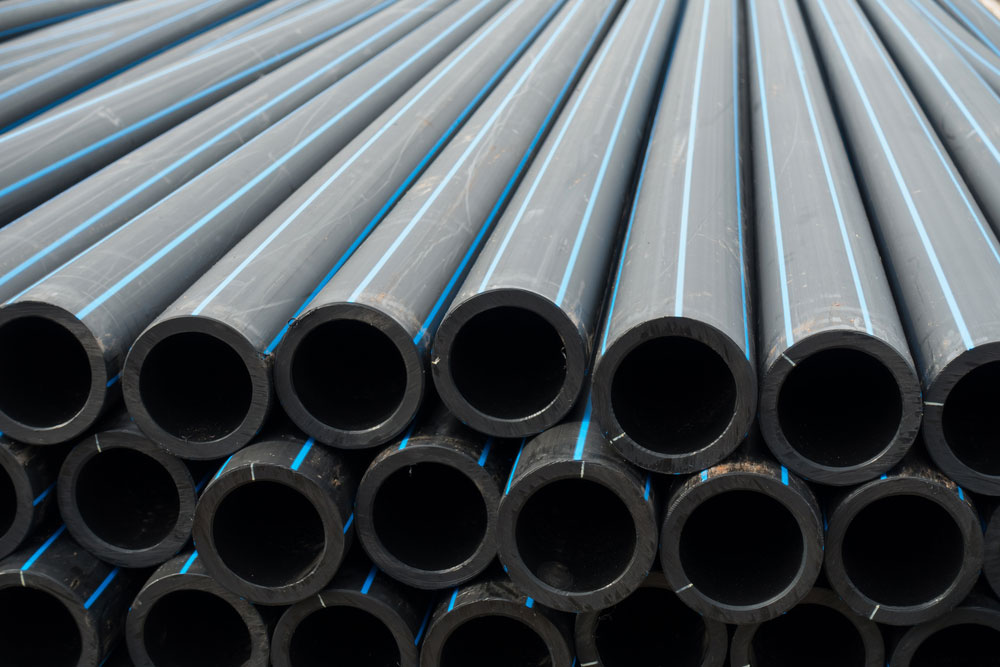How to Use hdpe pipe fittings Midland TX for Optimal Flow
Wiki Article
Comprehending the Secret Conveniences of HDPE Pipe for Water and Wastewater Monitoring
The use of HDPE pipe in water and wastewater administration presents numerous advantages that warrant factor to consider. Its outstanding longevity and long life expectancy make it a preferred choice for several jobs. Furthermore, the material's resistance to deterioration and chemical damage improves its integrity in various settings. Nevertheless, the benefits prolong past just durability and resistance. Discovering its cost-effectiveness and ecological impact discloses a lot more engaging reasons for its prevalent adoption in modern infrastructureOutstanding Durability and Longevity

HDPE pipe attracts attention for its phenomenal longevity and durability, making it a favored selection in water management systems. Built from high-density polyethylene, these pipes can withstand significant stress and tension, making sure trusted efficiency over time. Their robust nature enables them to sustain severe environmental conditions, consisting of temperature changes and dirt motions, which can trigger various other products to fall short.
The life expectancy of HDPE pipelines commonly exceeds 50 years, providing an affordable remedy for districts and sectors alike. Additionally, the material's light-weight homes simplify installment, lowering labor costs and timeframes. This sturdiness decreases the demand for regular repairs or replacements, further improving its financial charm.
In water administration applications, the dependability of HDPE pipes indicates fewer disruptions and improved solution connection, making them integral to sustainable facilities development. The mix of resilience and longevity solidifies HDPE's role as a keystone in effective water monitoring options.

Resistance to Rust and Chemical Damage
While many products catch rust and chemical damage in time, HDPE pipelines show impressive resistance, making them optimal for numerous water management applications. This resilience originates from the molecular structure of high-density polyethylene, which is naturally non-reactive and does not wear away like metals or degrade from exposure to extreme chemicals. Therefore, HDPE is very efficient in environments with hostile compounds, such as wastewater systems that may contain acids, bases, and organic solvents.
Furthermore, HDPE pipes can stand up to environmental factors such as dirt acidity and saline conditions, even more improving their suitability for varied applications (Pipe Supplier American Plastics Midland). Their ability to maintain architectural stability in time decreases the danger of leaks and failings, which is critical in making sure the security and integrity of water distribution and wastewater management systems. The resistance to corrosion and chemical damages noticeably contributes to the total effectiveness and longevity of HDPE piping solutions.
Cost-Effectiveness and Financial Benefits
When taking into consideration the economic effects of water management systems, the cost-effectiveness of HDPE pipelines comes to be noticeable. These pipes use reduced setup and maintenance expenses compared to conventional products like steel or concrete. Their lightweight nature streamlines transportation and installation, resulting in minimized labor expenses. Furthermore, HDPE pipes display a lengthy lifespan, commonly exceeding 50 years, which equates to less substitutes and lasting cost savings.The resistance of HDPE to corrosion and chemical damages look at more info lessens the requirement for pricey repair work and substitutes. The pipelines likewise support reliable water flow, decreasing energy expenses associated with pumping systems. By minimizing leakages and water loss, HDPE pipes add to significant financial advantages for municipalities and markets alike. On the whole, the first investment in HDPE piping can generate significant financial returns over the life-span of the water administration system, making it a sensible choice for sustainable facilities advancement.
Environmental Sustainability and Lowered Effect

Convenience and Flexibility in Installment
As a result of their distinct properties, HDPE pipes offer remarkable flexibility and adaptability in setup, making them ideal for a large variety of applications. Their light-weight nature permits less complicated handling and transportation, reducing labor costs and setup time. HDPE pipes can be bent and formed to fit numerous terrains and task requirements, which is especially valuable in challenging environments.Additionally, their resistance to corrosion and chemical damage permits installation in diverse setups without the demand for specialized protective layers. The ability to fuse joints develops a continuous, leak-free system, improving the general stability and reliability of the installation. HDPE's flexibility additionally fits ground activity, reducing the danger of damages in areas susceptible to shifting dirt. Generally, these qualities make HDPE pipelines not just versatile but also a favored option for water and wastewater administration systems.
Regularly Asked Inquiries
How Does HDPE Pipeline Contrast to PVC in Water Management Applications?
HDPE pipeline supplies premium flexibility, resistance to deterioration, and durability compared to PVC. Its lighter weight assists in much easier installation, while its lengthy life-span lowers replacement prices, making HDPE a preferred option in water administration applications.What Is the Lifespan of HDPE Water Lines Under Normal Conditions?
Under regular conditions, HDPE pipes can have a life-span ranging from 50 to 100 years. Their toughness and resistance to rust add to their lasting efficiency in different applications, making them a reliable choice for infrastructure.Are HDPE Pipes Recyclable After Their Service Life?
Yes, HDPE pipes are recyclable after their service life. Pipe Manufacturing Midland TX. They can be refined and repurposed right into new site link products, substantially lowering environmental impact and advertising sustainability within the market, making them a green option for piping optionsWhat Is the Installation Refine for HDPE Water Lines?
The installment process for HDPE pipes includes website prep work, trenching, pipe combination or mechanical signing up with, backfilling, and stress screening. Correct techniques assure a sturdy and efficient system for transporting water and wastewater efficiently.Can HDPE Pipes Be Utilized for Both Potable and Non-Potable Water Equipments?
Yes, HDPE pipes can be used for both drinkable and non-potable water supply. Their versatility, toughness, and resistance to rust make them ideal for different applications, making sure risk-free and effective transportation of water in different contexts.Report this wiki page